For 22 years, FIFDH has been dedicated to both cinema and the promotion of human rights. Each year, in the heart of international Geneva and in parallel with the main session of the UN Human Rights Council, the Festival presents films and hosts debates that highlight various struggles and denounce violations wherever they may occur.
We hold a strong conviction that a film, a voice, or a story—be it conveyed by an individual or a group—has the potential to instigate a shift in consciousness, spark new ideas and commitments, and ultimately drive social change.
Let’s open the debate!
FIFDH – International Film Festival and Forum on Human Rights Geneva – invites activists, NGOs, professors, diplomats, artists, activists, journalists and the general public to come together, exchange ideas, and engage in discussions. Over the course days of the Festival and throughout the year, the FIFDH attracts more than 40,000 attendees at 80 venues in the Greater Geneva area – spanning from the city center to the UN, museums, theaters, collective accommodation centers, hospitals, and prisons—with the aim of reaching diverse audiences and fostering inclusivity.
The debates have featured Nobel Prize winners Shirin Ebadi, Joseph Stiglitz, Tawakkol Karman and Dr Denis Mukwege. High Commissioners Michelle Bachelet and Zeid Ra’ad al Hussein. Activists Angela Davis, Nathan Law and Assa Traoré. Journalists Dmitri Muratov and Motaz Azaiza. Whistleblowers Chelsea Manning and Edward Snowden. Authors Chimamanda Ngozi Adichie, Arundathi Roy, Roberto Saviano, Alice Zeniter, Leïla Slimani and Philippe Sands. Artists Ai Weiwei and JR. Diplomats and politicians Svetlana Tikhanovskaïa and Leïla Shahid, but also Edgar Morin and Stéphane Hessel, along with many activists and esteemed professionals in the human rights field.

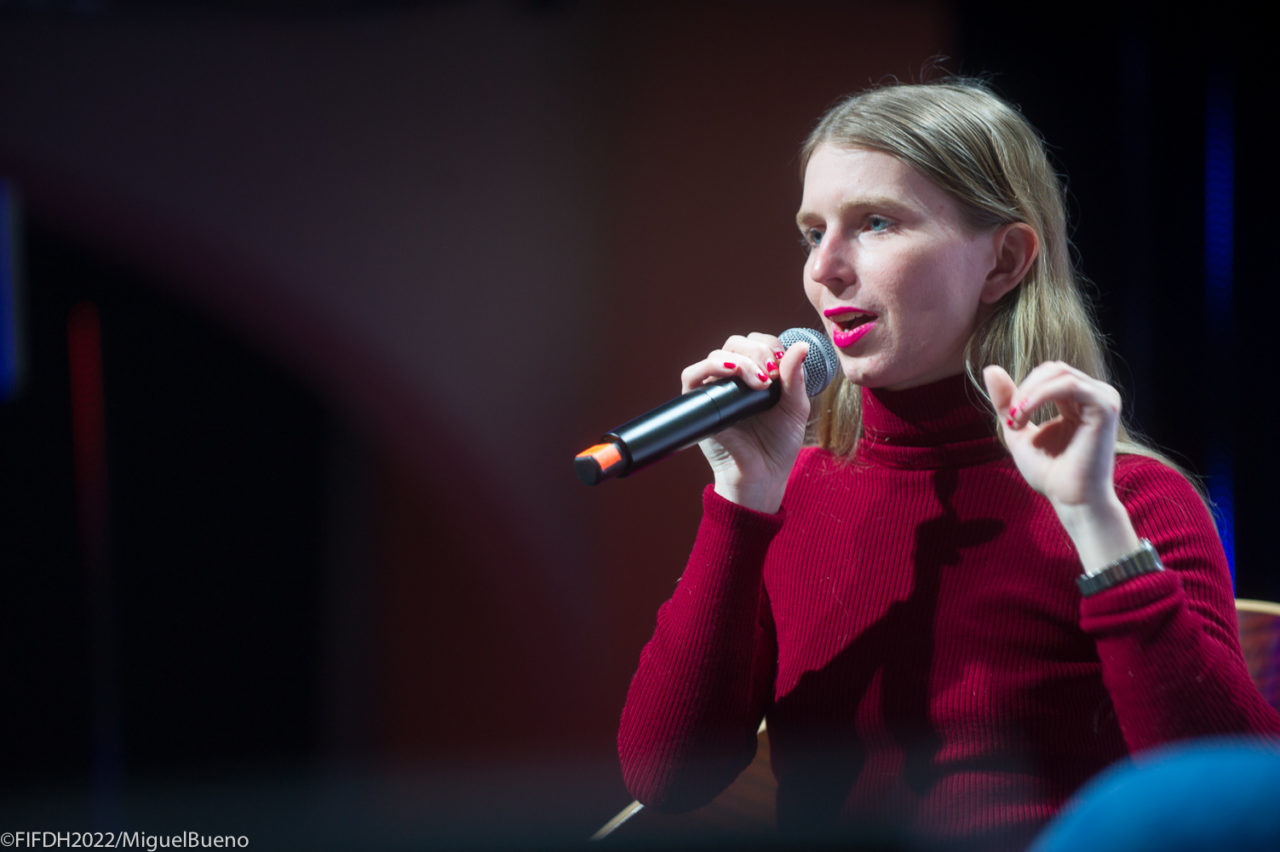

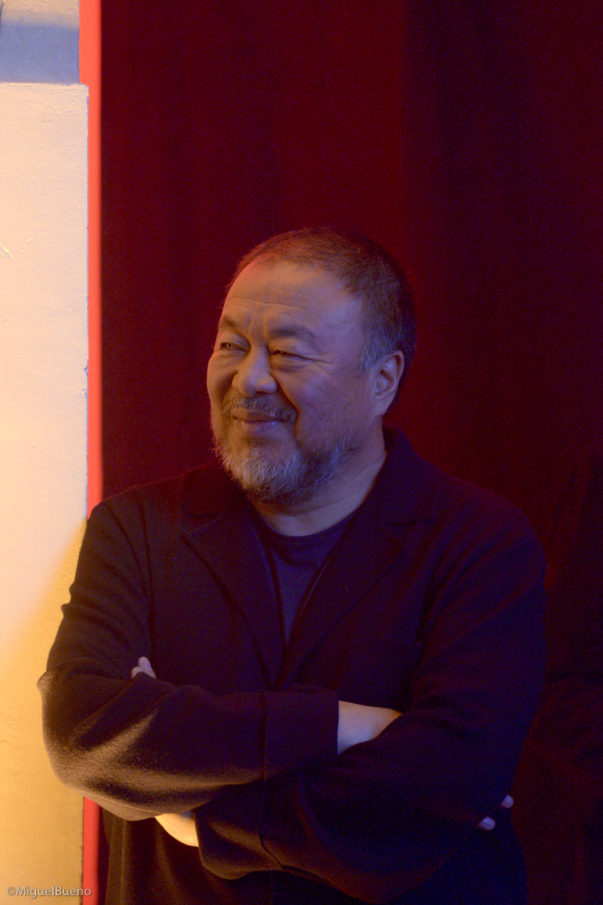
An international film festival
Three international feature film competitions — fiction and documentary — present a selection of socially conscious films, in the presence of the filmmakers and protagonists. The films lie at the heart of the FIFDH’s programme, valued for both their artistic impact and the important subjects they tackle.
They encourage meaningful interactions between the guests and the diverse audiences, fostering engagement and commitment.
The biggest names in international cinema have graced to the Festival, including Angelina Jolie, Forest Whitaker, Gael García Bernal, Rithy Panh, Raoul Peck, Juliette Binoche, Reda Kateb, Hanna Polak, Aïssa Maïga, Abderrahmane Sissako and Nabil Ayouch.

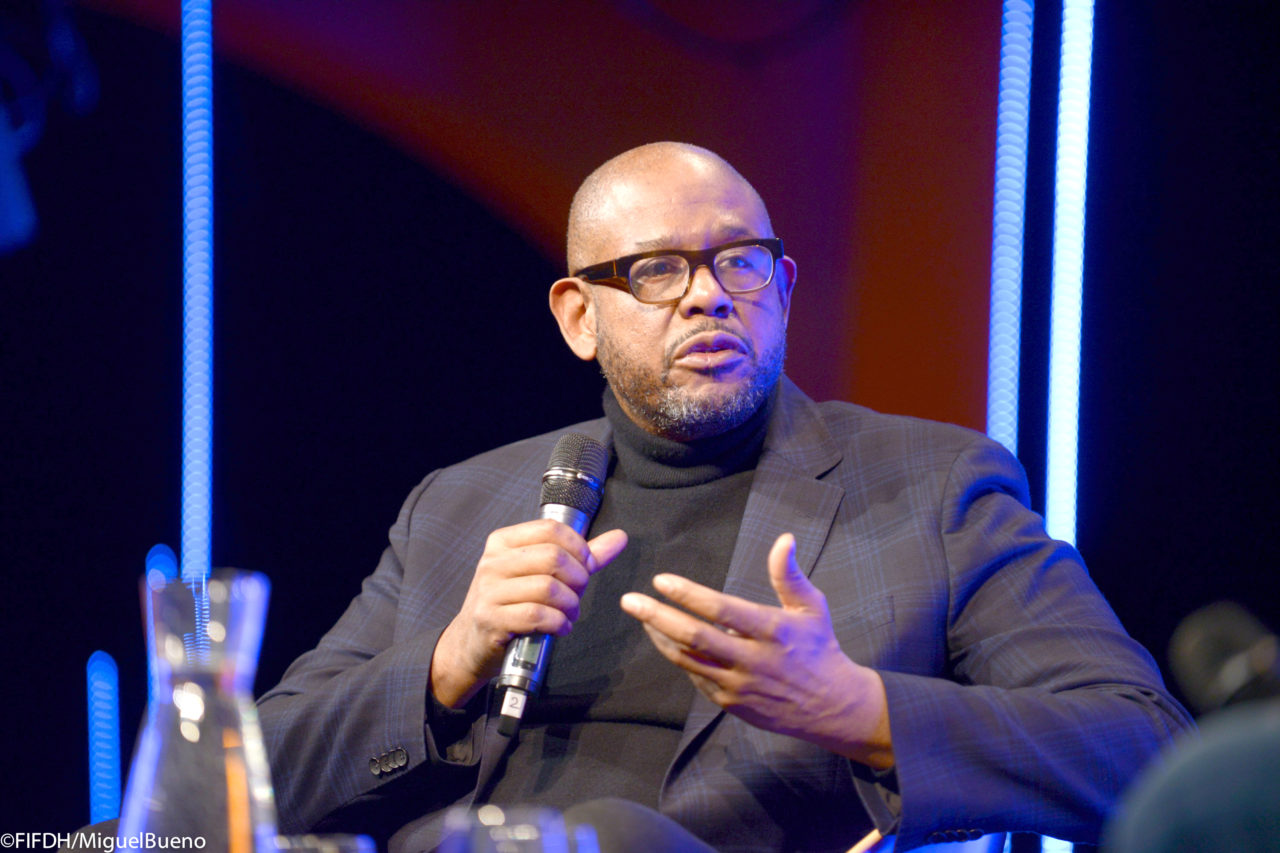
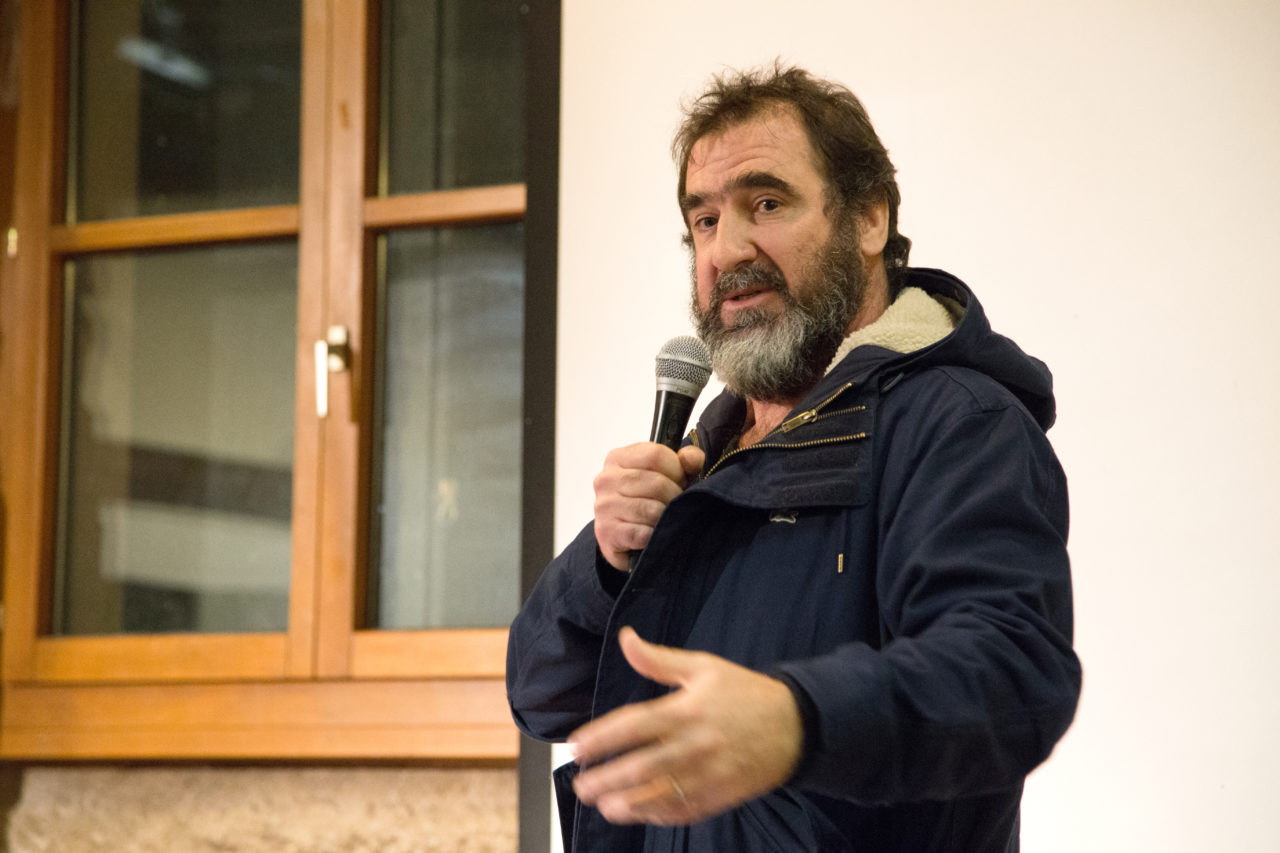
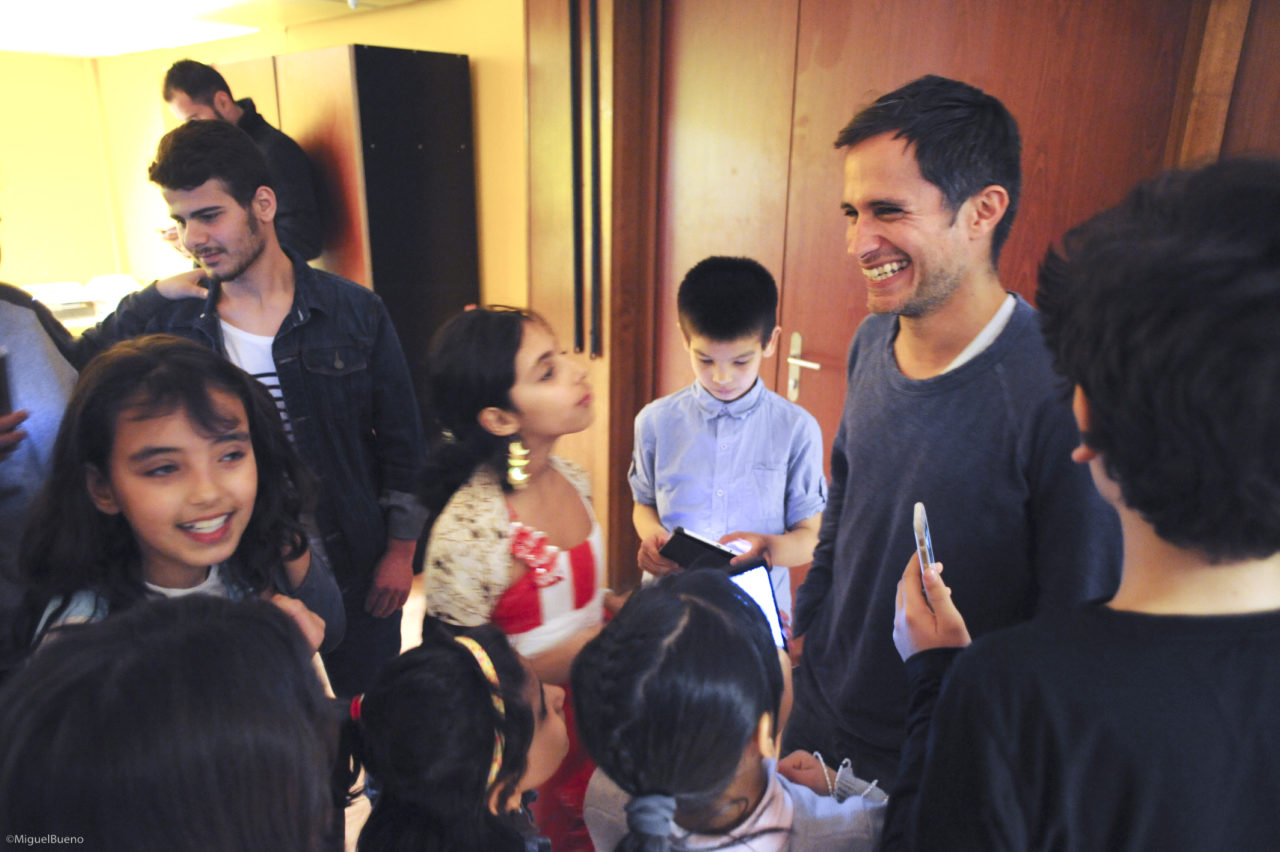
Cultural and school programme
With screenings in hospitals and correctional facilities, events in reception and accommodation centres, solidary tickets… the FIFDH champions cinema as an medium for education which also promotes inclusivity.
During the Festival, FIFDH for schools offers films and discussions for students. Throughout the year, teachers can screen films in their classrooms via the Festival’s educational platform.
Films and workshops for children and their families are also available during the Festival, designed to explore human rights issues from an early age.
To know more about the school programme.
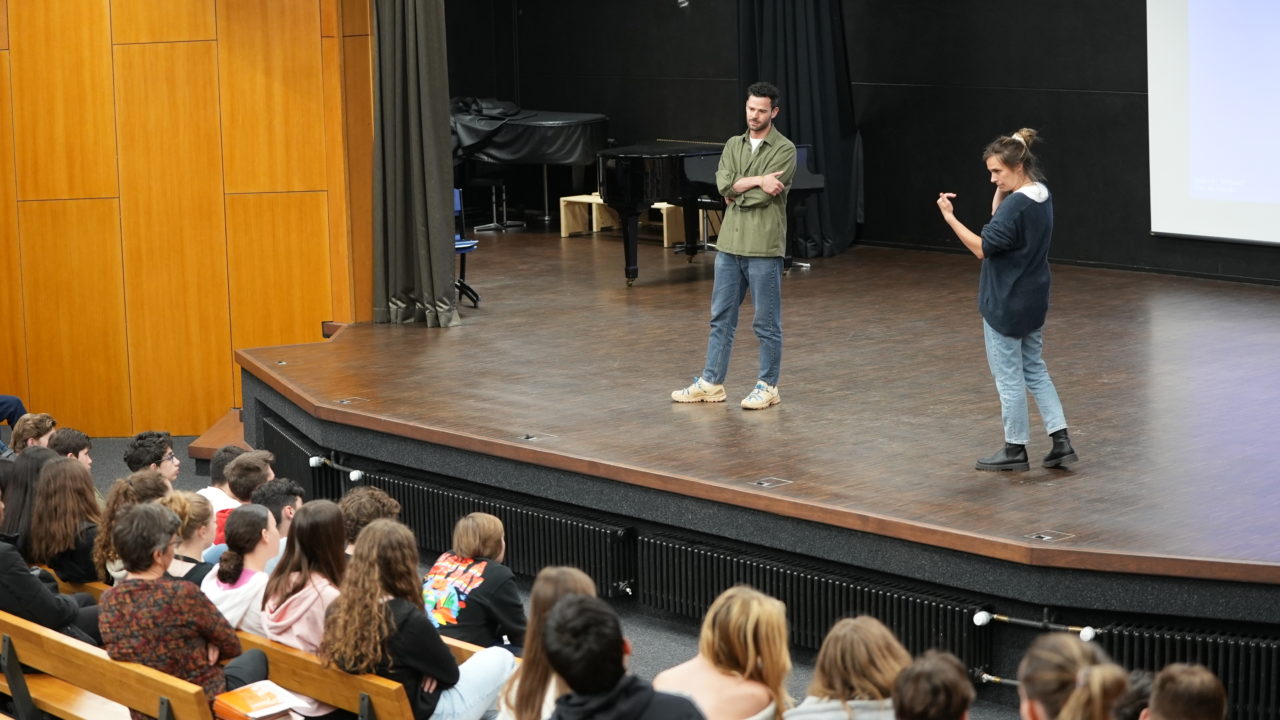
International Tour
FIFDH is spearheading the HUMAN RIGHTS FILM TOUR, in partnership with the Federal Department of Foreign Affairs (FDFA), an international tour of Swiss films followed by debates. With the support of Swiss embassies and local NGOs. The tour has visited 60 countries since 2018, including Sri Lanka, Nicaragua, Pakistan, South Sudan, Belarus, Guatemala, Algeria, Bhutan and Madagascar.
Industry programme
Impact Days: an unique laboratory for socially engaged cinema
This programme brings together filmmakers, producers, NGOs and foundations to develop collaborative synergies and run impact campaigns around films. As a go-between for filmmakers and international Geneva, the programme attracts every year over 900 people from 70 countries.
Impact Days also offers Swiss and international documentary projects — tackling urgent and current issues — the opportunity to benefit from a training and support programme over several weeks: the Impact Lab. A catalogue of projects, including thematic resources and films about impact campaigns, is available online.
To know more about the Impact Days.

International partners
The Festival benefits from the support of the Federal Department of Foreign Affairs (FDFA) and the City and Canton of Geneva. The Festival works closely with 170 international partners, including Amnesty International, World Organisation Against Torture (OMCT), Human Rights Watch (HRW), Doctors without Borders (MSF) and the Cinémathèque suisse. Its professional programme is supported by Doc Society, the Federal Office of Culture (OFC), Media Desk Switzerland and Suissimage. The FIFDH is a founding member of the Human Rights Film Network, a network of 45 international festivals. Its media partners are Le Temps, SSR-SRG, Radio Télévision Suisse (RTS), ARTE, Euronews, TV5Monde, Courrier International and France Culture.
To know more about the media coverage of FIFDH.
To know more about our partners.
Patrons
The Festival enjoys the support of esteemed individuals including singer Barbara Hendricks, former Swiss President Ruth Dreifuss, filmmaker Rithy Panh, actor, filmmaker and activist Gael García Bernal and producer Abigail Disney. Sergio Vieira de Mello, UN High Commissioner for Human Rights tragically killed in Baghdad in 2003, was the Festival’s first patron.
To know more about our patrons.
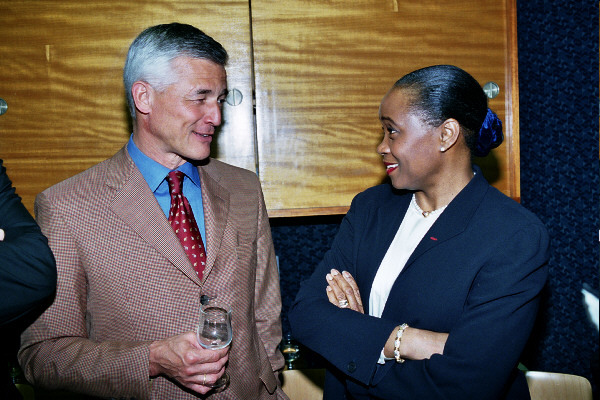
Barbara Hendricks, singer and Festival godmother
FIFDH Awards
Creative Documentary Competition
Grand Geneva Award
10’000 CHF – Offered by the City and Canton of Geneva
Awarded by the International Documentary Jury
Gilda Vieira De Mello Award, as a tribute to her son Sergio Vieira De Mello
5’000 CHF – Offered by the Barbara Hendricks Foundation for Peace and Reconciliation
Awarded by the International Documentary Jury
Youth Jury Award
1000 CHF – Offered by the Peace Brigades International (PBI)
Fiction Competition
Fiction Grand Award
10’000 CHF – Offered by the Hélène et Victor Barbour Foundation
Awarded by the International Fiction Jury
Youth Jury Award
1’000 CHF – Offered by the Eduki Foundation
Competition Focus
The World Organization Against Torture (OMCT) Award
5’000 CHF – Offered by the world Organization against Torture (OMCT) to a director whose film demonstrates his or her commitment to the human rights’ cause to help in the writing of his or her next film project
Awarded by the OMCT Jury
All competitions
Special jury
Awarded by a jury composed of patients of HUG’s Hôpital de jour
Learn more about the FIFDH cultural actions.
Ethical charter
The FIFDH is a space for open and genuine discussion, sharing ideas, information and analyses concerning human rights. The films shown and the proposed debates address some of our time’s most sensitive issues.
Audiences and participants at the festival undertake to be open-minded, tolerant, respectful, and caring. Any form of discrimination, racism, sexism, homophobia, transphobia, insult, violence, harassment, incitement to hatred or other inappropriate behaviour will not be tolerated at the FIFDH.
Values, missions and vision of the Festival
Missions

Bring to light: We highlight the causes defended by those who fight for human rights.
Debate: We publicly and freely open the debate on all human rights issues.
Bring together: We bring together those who defend human rights around the world – filmmakers, activists, and authors – with all our audiences.
Transform: We seek to raise awareness, challenge, and awaken curiosity by making our programme accessible to all.
Values
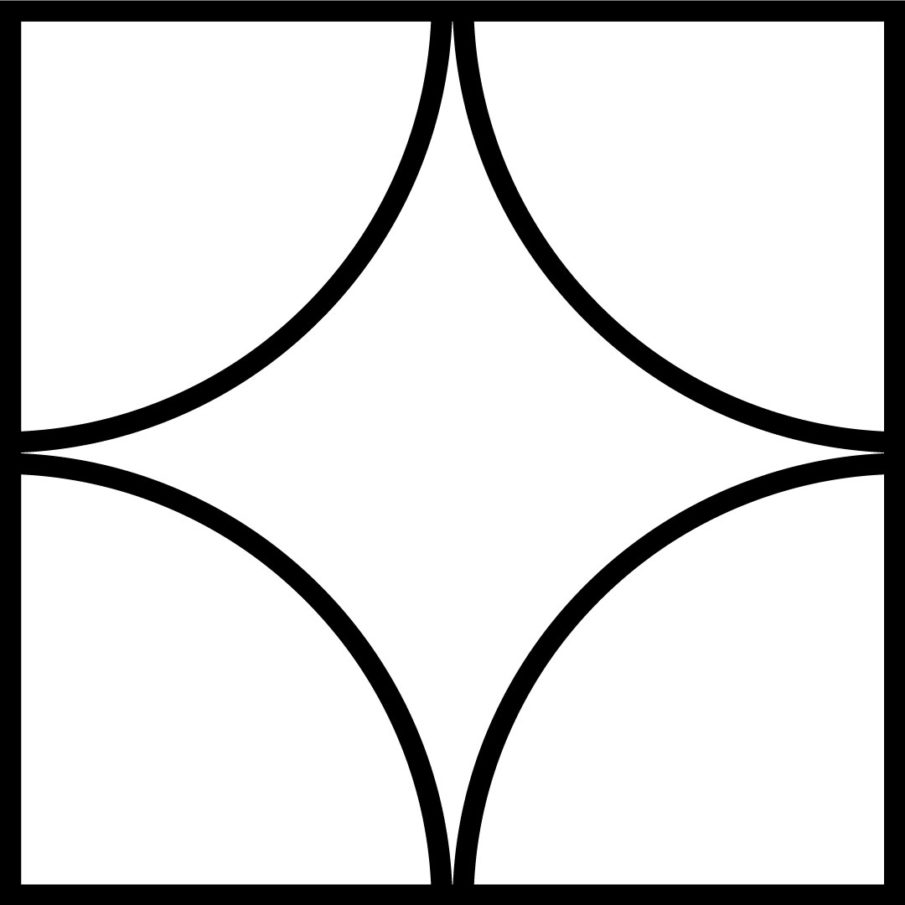
Openess: The FIFDH is a hub for dialogue and interaction, valuing diversity and empathy, and providing a platform where all voices are heard—without bias or prejudice.
Agility: Cultivating curiosity, confidence, initiative, and team spirit, we continuously adapt to evolving circumstances.
Solidarity: In a spirit of collaboration, we are committed to sharing our knowledge, promoting collective intelligence, mutual aid, and cooperation.
Sustainability: In the interests of coherence and impact, FIFDH wishes to futher align its practices with its values, and to strengthen its social, ecological, economic and governance commitments.
Relevance: In a world marked by rapid change and escalating crises, it is essential that the FIFDH constantly ensures that it addresses current human rights issues in a meaningful manner.
Independence: FIFDH’s freedom of expression and content must be upheld, free from any political, social, or financial injunction or pressures.
Transparency: FIFDH will develop the necessary governance tools (charters, codes of conduct, etc.) to clarify its operations and reinforce its ethical standards; the Festival pledges to communicate these measures publicly and to update them regularly to remain responsive to complex realities.
Vision
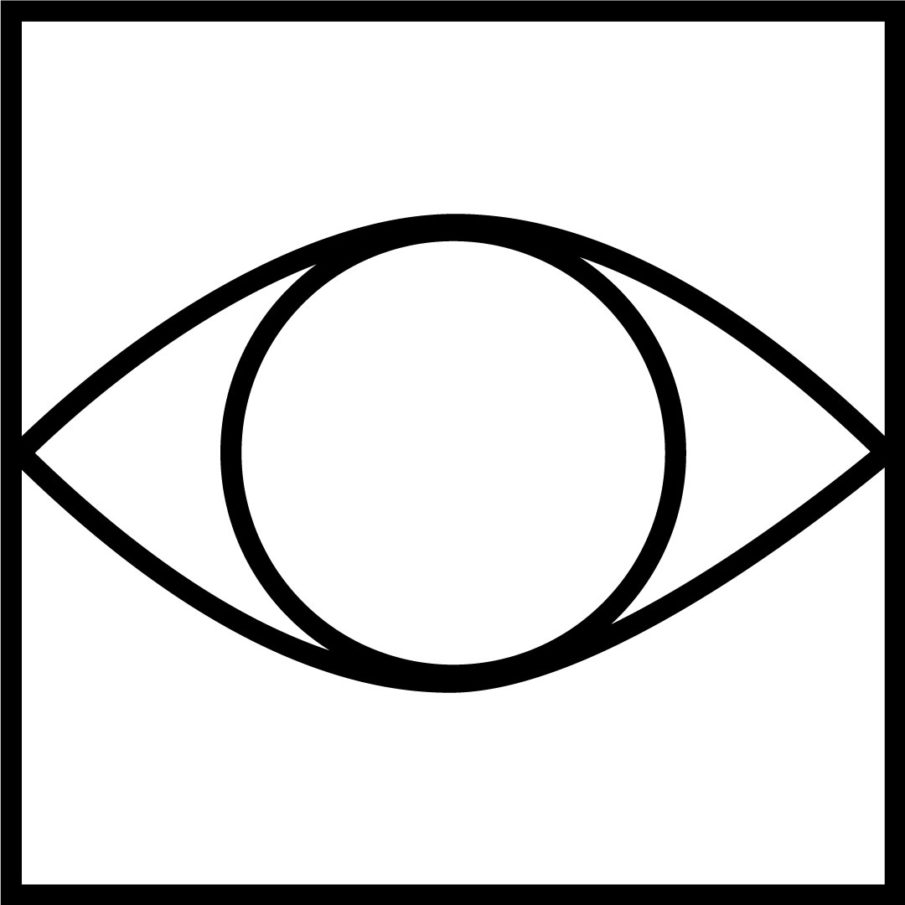
We strongly believe that a film, a voice, a story, carried by an individual or a group, can provoke a change of consciousness, arouse new ideas and commitments, leading to social change.
Archives and reports
Download
Annual report 2023 (in French)
Annual report 2022 (in French)
Annual report 2021 (in French)
Annual report 2020 (in French)
Archives
Programmes and activity reports of the previous editions of the FIFDH